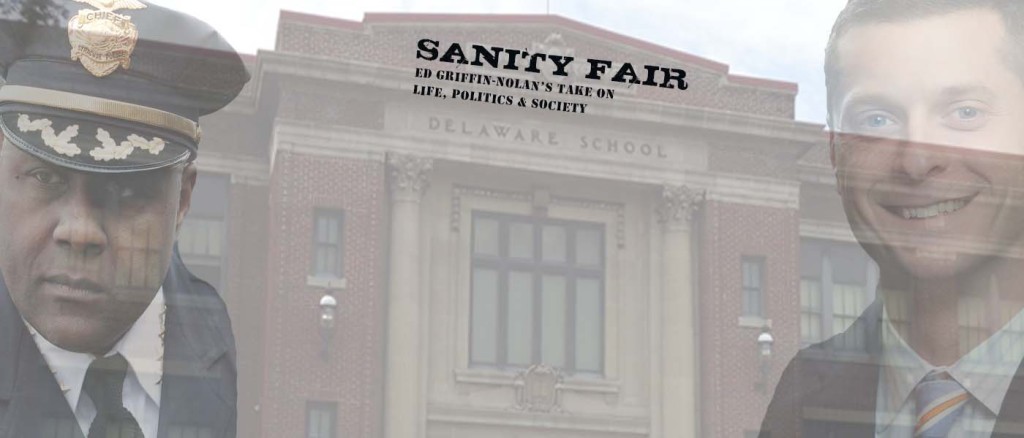Usually when you see a business leader and a police chief standing up together at a news conference, the topic has something to do with crime. Maybe the cops are starting a community policing project in a shopping district, or the Chamber of Commerce is putting up money for surveillance cameras.
Mostly when we see the police and the schools spoken of in the same breath, it’s about unruly kids and the need for more officers in the hallways.
When we hear the voice of business, it’s frequently about lowering taxes to promote economic development.
Which made for a novelty of sorts that Syracuse Police Chief Frank Fowler and Center State CEO executive director Rob Simpson stood shoulder to shoulder at Delaware Academy March 20 to announce their support for adding to state money for Syracuse’s youngsters.
Common Councilor Nader Maroun joined the event, sponsored by the Alliance of Communities Transforming Syracuse (ACTS). ACTS has made money for pre-kindergarten one of its signature issues for the past three years.
Syracuse late last year lost in a grants competition for pre-K money when the state Department of Education awarded $25 million to 27 districts, including $6 million to Rochester and $5 million for New York City. Syracuse was seeking $1.8 million and received nothing.
Meanwhile, the governor is pushing a plan to restore college courses for inmates at state prisons. He estimates that it will cost $5,000 per year per inmate and hopes to find private money to supplement the state dollars. He calls it an investment that will pay off in the future, since college-trained prisoners are much less likely to commit crimes and end up back in prison.
That’s the same logic the police chief employed to argue for pre-K: 42 percent of the inmates in state prisons, Fowler says, don’t have a high school diploma. Maybe the governor should listen to the chief.
Have you heard this before?
A note of curiosity: Last week, The Post-Standard ran a story about the costs incurred by DeWitt to arrest, try and sentence more than a dozen people who have regularly protested at Hancock Air Base against the use of drones in the Afghan war. DeWitt figured the cost down to the last dollar–$42,786–and Town Manager Michael Moracco is quoted suggesting that the figure could double. Town Justice David Gideon just sentenced a dozen protesters who were arrested at the air base in 2012 and still has on his docket the case of 30 drone activists who were arrested in 2013.
While this pales in comparison to the cost of a drone (estimated at $4 million), it raises a few questions. Does DeWitt, or any town in our area, make a practice of itemizing the cost of each trial? If so, it would be interesting to see the accounting. If the judge is there for routine traffic violations, the building is already heated, the security in the courthouse is already in place–is this all being charged to the drone activists’ case?
Help us out here: Does anyone recall the last time a municipality recorded and publicized the cost of a trial for a misdemeanor? Or the last time The Post-Standard chose to report same?

For more like ‘United in Support of Education’ – CLICK HERE FOR SANITY FAIR



